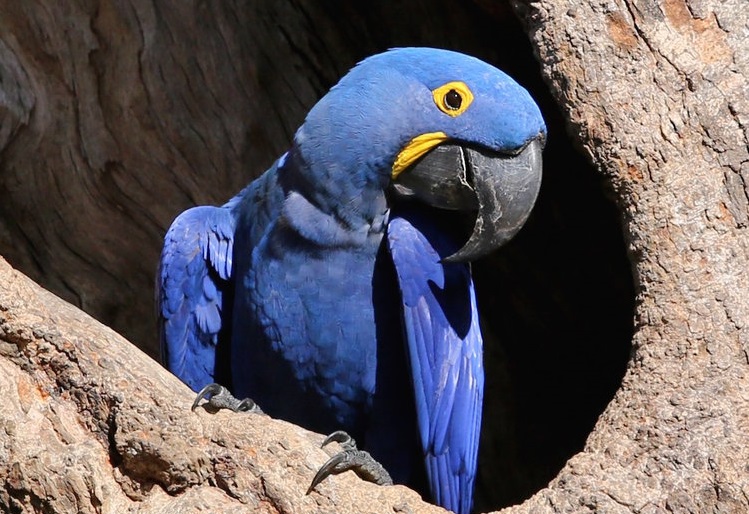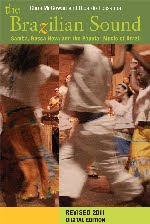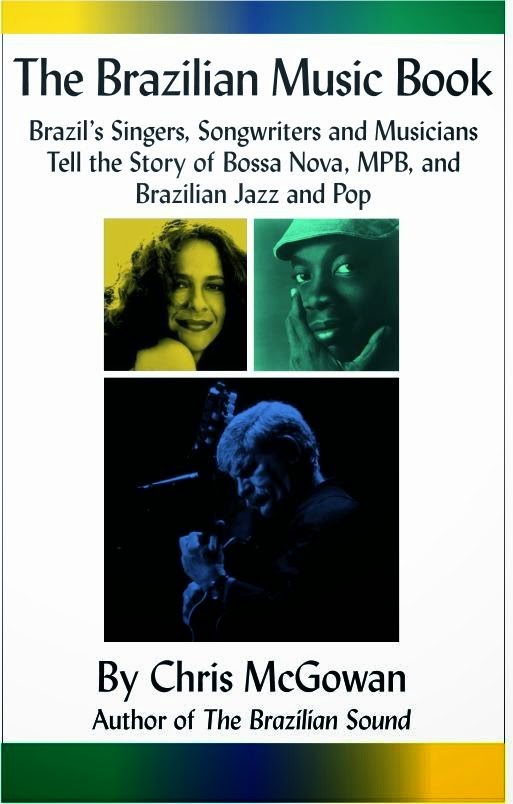Leny Andrade:
The Jazz-Bossa Diva
The Jazz-Bossa Diva
A 1963 album with singer Leny Andrade
"Leny Andrade… does scat singing with an agility that approaches Ella Fitzgerald." —John S. Wilson, The New York Times
Leny Andrade is a female vocalist associated with the bossa nova and jazz shows in the legendary Beco das Garrafas in Copacabana. Her lively, passionate, jazz-inflected style has brought her critical praise and a long career. Hers is one of Brazil's most virtuosic and distinctive voices in samba, jazz and bossa nova.
Leny de Andrade Lima was born on January 25, 1943 and grew up in Meier, a neighborhood in Rio's Zona Norte near the samba stronghold of Vila Isabel. "My mother is a professor of piano. In the beginning I was singing and playing piano. I studied piano from age six to fourteen," Andrade recalled. "The influence of jazz came through my knowledge of piano. A singer who plays an instrument sings in a different way and searches more for rich harmonies. I can't manage to sing a simple little song harmonically; it has to have a rich harmony."
She became a professional singer while only fifteen, making her debut with the orchestra of Maestro Perminio Goncalves. "When you sing as a crooner at bailes (dances), you learn a lot. You have to sing in other idioms, various rhythms. I did this for three years, between fifteen and eighteen. My father went with me because I was a minor in age."
Then came bossa nova, which Andrade was performing at the end of the 1950s and start of the '60s, still underage in her first shows. "Bossa nova was beginning. I sang with the Sérgio Mendes Trio—Mendes, Edson Machado, and Sebastião Neto—in Bottles Bar, one of four small nightclubs in the Beco das Garrafas [a small alley off Rua Duvivier in Rio]. It was mostly jazz and bossa nova there. Sérgio played his first samba with me. He didn't like to play samba; he only played jazz. He used to say that without wanting to, in order to continue playing in this club, he had to play samba with me, so he ended up becoming a millionaire.
"I sang both samba and jazz equally. It was a very interesting time. The Beco das Garrafas was a place with the best musicians: Luis Eça, Edson Frederico, Durval Ferreira, Mauricio Einhorn, Nara Leão, Tamba Trio, Carlos Lyra. It was a meeting every night of great musicians.
"And in the middle of this was Lennie Dale [1934-1994], an American who was very important in Brazilian music. He changed many things in the style of Brazilian music. He helped Elis [Regina] very much with his marvelous ideas, with putting on shows. He was a dancer and had an academy of dance in Brazil."
Leny Andrade sings "Batida Diferente"
(composed by Durval Ferreira
and Mauricio Einhorn)
and Mauricio Einhorn)
Leny
added, "I was singing 'Estamos Ai.' He heard it in rehearsal and said,
'Why not do it like this?' He helped singers and helped with the choreography,
with the fantastic musicality that he had. I adore him. He has a talent that
doesn't end."
She
continues, "In 1960, I recorded my first disc, A Sensação Leny Andrade [released the next year]. It was bossa
nova, improvisations, some samba-cancões, and it gained prizes. In the '60s, I
did many things. I did Gemini 5 [a
musical show] with Otávio Bailey, Pery Ribeiro, Luiz Carlos Vinhas, Ronie
Mesquita; it was first big show of bossa nova made in Brazil, and played for
one year. Then I went to Mexico and played for one year there. In 1964 I sang
in Buenos Aires in La Noche Club." Andrade lived in Mexico from 1966 to
1972, becoming well known on television and in musical theater.
In
her lengthy career, Leny has appeared at New York's Birdland, the Blue Note, and Town
Hall, the Smithsonian Institution, the Hollywood Bowl, Ronnie Scott's Jazz Club
in London, and numerous European and American jazz festivals. She has performed
with artists such as Paquito D'Rivera, Luiz Eça, Dick Farney, João Donato,
Eumir Deodato, Cesar Camargo Mariano, Romero Lubambo, and Francis
Hime, along with others mentioned above.
Leny Andrade sings "Estamos Ai"
(Mauricio Einhorn - Durval Ferreira)
Luz Neon, produced by Antonio Duncan, was released in 1989 and its repertoire ranges from Gonzaguina ("É") to Antonio Carlos Jobim ("Wave") to Aldir Blanc and Moacyr Luz ("Aquário") to Dizzy Gillespie ("Night in Tunisia"). "We recorded the album in six hours. I like to record like that. That way it has the emotion I want to communicate to the public. It isn't cold like many Brazilian records that I listen to. So I put the group in the studio and directed them. I had rehearsals before, and then made the record directly. It has the warmth, the spontaneity, like live music, that I like. I like to improvise."
Leny sings "A Night in Tunisia"
About
her singing, she observed, "I almost always change my style." While
she can improvise and scat with the best of jazz singers, Leny said, "I
will never stop doing songs that are as Brazilian as they are. There already
exist fantastic American singers like Carmen [McRae], Sarah [Vaughan] and Ella
[Fitzgerald]. You are never going to see a Brazilian pianist play like Oscar
Peterson. Foolishness. You have to bring new, beautiful, well-done things from
your country, or you don't need to come."
In 2007, Leny shared a Latin Grammy Award with Cesar Camargo Mariano for Best MPB Album for their Ao Vivo album.
In 2007, Leny shared a Latin Grammy Award with Cesar Camargo Mariano for Best MPB Album for their Ao Vivo album.
The quotes in the above profile come from an interview I conducted with Leny
Andrade.
_______
Leny Andrade Select Discography
A
Sensação. RCA Victor, 1961.
A Arte Maior de Leny Andrade. Polydor, 1963.
A Arte Maior de Leny Andrade. Polydor, 1963.
Gemini V—Show na Boate Porão 73. Odeon, 1965.
Estamos Aí. Odeon, 1965.
Gemini Cinco Anos Depois. Pery Ribeiro & Leny Andrade. Odeon, 1972.
Alvoroço. Odeon, 1973.
Expo-Som 73, Ao Vivo. Odeon, 1973.
Leny Andrade. Odeon, 1973.
Registro. Columbia, 1979.
Leny Andrade. CBS, 1979.
Presença de Leny Andrade e Os Cariocas. CBS, 1979.
Leny Andrade. Pointer, 1984.
Cartola 80 anos. CBS, 1988.
Luz Neon. Eldorado, 1989.
Eu Quero Ver. Eldorado, 1990.
Bossa Nova. Eldorado, 1991.
Embraceable You. Som Livre, 1993.
Nós (with Cesar Camargo Mariano). Velas, 1994.
Maiden Voyage. Chesky Records, 1994.
Coisa Fina (with Romero Lubambo). Perfil Música, 1994.
Antonio Carlos Jobim, Letra e Música (with Cristóvão Bastos). Lumiar Discos, 1995.
Luz Negra—Nelson Cavaquinho por Leny Andrade. Velas, 1995.
Estamos Aí. Odeon, 1965.
Gemini Cinco Anos Depois. Pery Ribeiro & Leny Andrade. Odeon, 1972.
Alvoroço. Odeon, 1973.
Expo-Som 73, Ao Vivo. Odeon, 1973.
Leny Andrade. Odeon, 1973.
Registro. Columbia, 1979.
Leny Andrade. CBS, 1979.
Presença de Leny Andrade e Os Cariocas. CBS, 1979.
Leny Andrade. Pointer, 1984.
Cartola 80 anos. CBS, 1988.
Luz Neon. Eldorado, 1989.
Eu Quero Ver. Eldorado, 1990.
Bossa Nova. Eldorado, 1991.
Embraceable You. Som Livre, 1993.
Nós (with Cesar Camargo Mariano). Velas, 1994.
Maiden Voyage. Chesky Records, 1994.
Coisa Fina (with Romero Lubambo). Perfil Música, 1994.
Antonio Carlos Jobim, Letra e Música (with Cristóvão Bastos). Lumiar Discos, 1995.
Luz Negra—Nelson Cavaquinho por Leny Andrade. Velas, 1995.
Bossas Novas. Albatroz, 1998.
Leny Andrade Canta Altay Veloso. Paradoxx Music, 2000.
Leny Andrade Canta Altay Veloso. Paradoxx Music, 2000.
E Quero Que a Canção Seja Você. Albatroz, 2001.
Leny Andrade and Cesar Camargo Mariano: Ao Vivo (Momentos Bons da bossa). Albatroz, 2007.
Leny Andrade and Cesar Camargo Mariano: Ao Vivo (Momentos Bons da bossa). Albatroz, 2007.
Alma Mia. Independent, 2012.
Canciones del Rey. Independent, 2013.
Iluminados. Independent, 2014.
Interviews with Brazilian Musicians
The Brazilian Music Book
by Chris McGowan
The Leading Introduction
to Brazilian Music
The Brazilian Sound by Chris McGowan
and Ricardo Pessanha
_______
Canciones del Rey. Independent, 2013.
Iluminados. Independent, 2014.
Interviews with Brazilian Musicians
The Brazilian Music Book
by Chris McGowan
The Leading Introduction
to Brazilian Music
The Brazilian Sound by Chris McGowan
and Ricardo Pessanha
_______
















